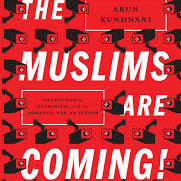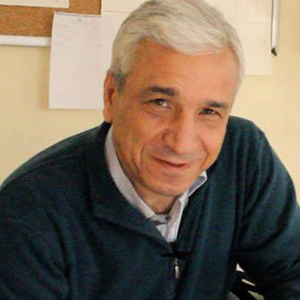Britain's citizens are members of two great democracies: the United Kingdom and the European Union. But the peoples of these democracies have started to desert them. Over 18 million people chose not to vote in the 2001 general election almost equal to the combined vote of the two major parties. For the 1999 European election the Apathy Party won an even bigger landslide over three quarters of the electorate did not vote.
We know why. More and more people feel that politics and voting make no difference to their lives. Faced with the same crisis, I believe that both democracies must seek the same cure a new constitutional settlement which would give voters power, and a belief in their power. For the United Kingdom, I believe that new settlement must begin by recognising the reality of political power today, and then finding new ways to scrutinise it and call it to account. That means acknowledging the huge change in the office of prime minister. In my book The Last Prime Minister I explain why and how this office has turned into a mighty executive presidency masquerading behind the myth and the veil of parliamentary sovereignty. The office of prime minster now dominates indeed, virtually controls parliament, the political parties, the cabinet, and almost every organ of the British state.
Only the term presidency conveys the extraordinary multi-layered role of the British prime minister, which is unlike any other office in the Western world. We expect him or her to be simultaneously the head of our government, and its principal policy maker, advocate, ideologue, and media manager, our principal legislator, our commander-in-chief in war or emergency, a leader and chief executive of a political party and, of course, a constituency MP.
To discharge all those responsibilities the prime minister gets a unique combination of powers. The formal and acknowledged powers are real and important enough executive powers in government, including nearly all surviving Royal prerogatives, control over most of parliamentary business and virtually all its legislation, and powers of appointment of ministers, peers and senior public offices.
But the unacknowledged ones are even more important. The prime minister can virtually select the people who will represent his or her party in parliament, and once they are elected he has great power over their conduct and their survival. Amazingly, he can even appoint or refuse them as members of Select Committees. A modern prime minister can actually choose the principal watchdogs of the House of Commons : imagine Jeffrey Archer being allowed to pick the police force.
Above all, the prime minister has a special power to make news, feed the media, set the political agenda and shape the public perception of events and policies.
That is why, on 28 November 2001, I introduced the prime minister (Office, Functions, Responsibilities) Bill the first attempt in our history to write down in statute what the prime minister does and how he should answer for it.
Acknowledging and defining the presidency is a pre-condition for better government and democratic renewal.
A mighty prime minister/president gives us strong government and political direction. Without one the British state simply marks time. But the office has come with a price. We have an atrophied parliament, a disenchanted electorate, and an over-centralised nation, where local government is corralled and controlled and public services are run by unelected quangoes or ministerial fiat.
The minute we define the British presidency and its boundaries we open up all sorts of new possibilities for British democracy. We could gain a directly elected head of government.
We could have an independent legislature, in control of the government's business and its procedures, its members free to initiate laws and policies and ideas and put them to public consultation, free to find new ways of scrutinising the government, breaking down official secrecy, opening up public appointments and making politics relevant to voters. We could create a fresh role for local and regional government, make public services more responsible to local needs and local choice, and give local communities real power to make a difference to their lives. We could make it more important to take part in public life, more rewarding to join a party, sign a petition, go to a political meeting, write to a councillor or MP, or perform public service and above all, we could make voting a vital part of civic life.
An even greater challenge confronts the European Union. A few weeks ago it was savagely attacked for being too bossy, remote, secretive and undemocratic, with inadequate procedures and wrong priorities, and for failing all its peoples. The savage attack came not from Britain's rabid Eurosceptic newspapers but from the Belgian prime minister a convinced European integrationist.
That is why I have urged the government to take an active part in drawing up a written constitution for the European Union. We need such a constitution to set clear boundaries to the power of the EU and underpin the authority of national, devolved and local governments, and to check any drive for centralisation, over-regulation and interference.
Above all, we need a written constitution which makes citizens feel that they own the EU, not the other way round, and which allows them to change by voting for the people and policies that affect their lives.
Graham Allen's book The Last Prime Minister is available from Amazon UK. His website can be found at www.grahamallen.labour.co.uk

